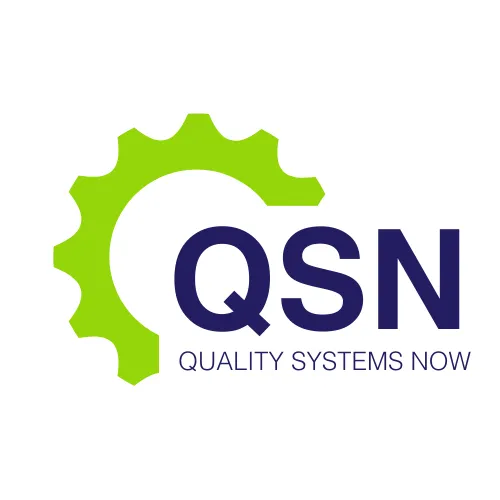NEWS

Customized GMP and ISO Training Solutions Designed for Your Business
Regulatory authorities such as the Therapeutic Goods Administration (TGA), the U.S. Food and Drug Administration (FDA), and the European Medicines Agency (EMA) consistently highlight the critical role of training in Good Manufacturing Practice (GMP) and relevant ISO standards. However, generic training approaches often fail to address the complex, highly contextualised challenges that individual businesses face. This is where customised training becomes essential.
QSN Academy, the educational division of Quality Systems Now, delivers scientifically robust and fully customised GMP and ISO training solutions. Designed to align with your business's products, processes, and compliance requirements, these training solutions go beyond regulatory box-ticking. They aim to build a sustainable culture of compliance and quality assurance that is integrated with strategic and operational goals.
This article explores the scientific rationale behind customised training, outlines its regulatory relevance, and discusses how QSN Academy tailors training to maximise impact for businesses operating in the highly regulated therapeutic goods and biotechnology sectors.
The Importance of Context-Specific Training in Regulated Environments
Training is not simply a regulatory formality; it is a fundamental pillar of a functional Pharmaceutical Quality System (PQS) and a mature Quality Management System (QMS). The International Conference on Harmonisation’s ICH Q10 guideline explicitly references personnel training as a key enabler of effective quality systems. Similarly, ISO 13485:2016, the global standard for medical devices, requires that organisations determine competency requirements, provide training, and evaluate its effectiveness.
Despite this, many companies rely on off-the-shelf or broadly generic training modules that fail to reflect the specific realities of their operations. Scientific and operational variability between manufacturers, laboratories, and development organisations renders a one-size-fits-all approach insufficient.
Customised training solutions respond to these deficiencies by integrating your unique Standard Operating Procedures (SOPs), product profiles, risk assessments, and real-world scenarios. This context-driven methodology enhances comprehension, improves retention, and strengthens application, thereby reducing compliance risks and enabling operational excellence.
The Regulatory Drivers Behind Tailored Training
Multiple regulatory frameworks reinforce the expectation that training must be specific, effective, and ongoing. The PIC/S Guide to GMP, which forms the basis for Australia’s GMP requirements, states that training should be “relevant to the duties assigned to each individual” and “assessed for effectiveness.”
ISO 9001:2015 and ISO 13485:2016 both require organisations to determine the necessary competence for personnel, provide appropriate training, and evaluate its effectiveness with respect to product quality and compliance outcomes.
Critically, both frameworks demand a risk-based approach to competence development. This necessitates an understanding of how individual roles impact product safety, efficacy, and regulatory compliance. A blanket training strategy cannot fulfil this requirement. Only tailored, scientifically grounded training can ensure that personnel are prepared to manage their specific responsibilities in a compliant and confident manner.
Scientific Foundation of Customised Training Solutions
Effective training requires alignment with adult learning theories, particularly in scientific and technical environments. QSN Academy’s approach draws on evidence-based educational methodologies including:
Cognitive Load Theory: Information is presented in manageable increments aligned with employee experience and background, reducing cognitive overload and increasing retention.
Constructivist Learning Theory: Learners are encouraged to relate new information to prior knowledge and workplace experiences, fostering deeper conceptual understanding.
Experiential Learning: Case studies, deviations, and non-conformance examples from the client’s own facility are used to promote critical thinking and decision-making.
Competency-Based Learning: Training is structured around specific tasks and regulatory requirements, with clear assessment metrics for evaluating capability.
This scientific framework ensures that training is not merely informative but transformative. Employees finish training not just with theoretical knowledge but with the practical skills and confidence necessary for compliant, efficient operations.
How QSN Academy Customises GMP and ISO Training
QSN Academy begins each client engagement with a comprehensive training needs analysis. This process involves reviewing the company’s existing QMS or PQS, SOPs, product classifications, regulatory obligations, and prior audit findings. In collaboration with client stakeholders, QSN Academy identifies knowledge gaps, role-specific responsibilities, and training delivery preferences.
Based on this analysis, QSN Academy develops a fully bespoke training package. Customisation may include:
Role-specific modules for manufacturing operators, quality assurance personnel, regulatory affairs staff, and senior management
Integration of company SOPs and deviation histories into training content
Case studies from the client’s recent inspections or internal audits
Live workshops and Q&A sessions that address site-specific challenges
Post-training assessments and feedback loops to validate comprehension and application
Documentation suitable for regulatory inspection, including training matrices and competency evaluation reports
All content is developed and delivered by subject matter experts with deep regulatory experience and scientific expertise in GMP, ISO 13485:2016, ISO 9001:2015, PIC/S, and related standards.
Benefits of Customised Training for Your Business
1. Improved Regulatory Readiness
Customised training ensures that employees are prepared not only to perform their tasks correctly but also to demonstrate their understanding during inspections. This reduces the likelihood of audit observations and enhances confidence during regulatory engagements.
2. Reduced Compliance Risk
By targeting the specific risks associated with your operations, tailored training prevents common non-compliances such as incomplete documentation, misinterpretation of procedures, and poor data integrity practices.
3. Increased Operational Efficiency
Well-trained employees make fewer errors, operate more autonomously, and require less supervision. Training aligned with actual workflows enables smoother handovers, faster production cycles, and less rework.
4. Sustainable Quality Culture
Customised training contributes to a culture where quality is understood, valued, and practiced at every level. It reinforces accountability, encourages continuous improvement, and supports strategic business goals.
5. Enhanced Employee Engagement and Retention
When employees see that training is relevant to their actual duties and delivered with their professional growth in mind, they are more engaged, more motivated, and more likely to remain with the organisation.
Real-World Applications
QSN Academy has delivered customised training programs to Australian and international clients across the pharmaceutical, medical device, and biotechnology sectors. These programs have resulted in measurable improvements in audit outcomes, reduced training time, and increased staff confidence.
Clients have also reported better integration of quality principles into daily operations, including improved deviation reporting, clearer batch record completion, and increased responsiveness to CAPA initiatives.
Conclusion
In an industry where quality failures can lead to patient harm, market withdrawal, or regulatory penalties, the stakes are high. Standardised training programs offer a baseline, but they often fall short of equipping staff with the skills and confidence they need to operate in complex, high-risk environments.
QSN Academy’s scientifically designed, fully customised GMP and ISO training solutions provide a smarter, more effective alternative. Grounded in regulatory requirements and adult learning principles, and tailored to your specific business needs, these programs transform training from a compliance obligation into a strategic asset.
Investing in customised training is not only an investment in compliance — it is an investment in operational excellence, employee engagement, and long-term business success. To learn more about how QSN Academy can support your team, contact us for a consultation and training needs assessment.
